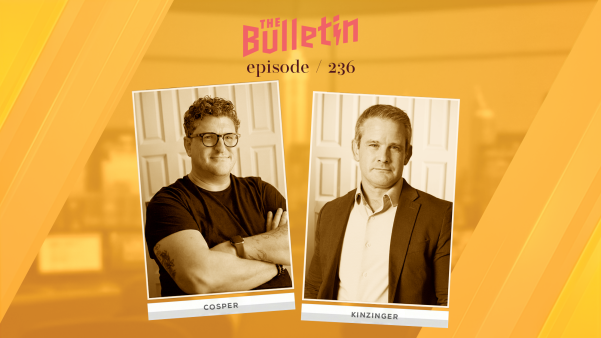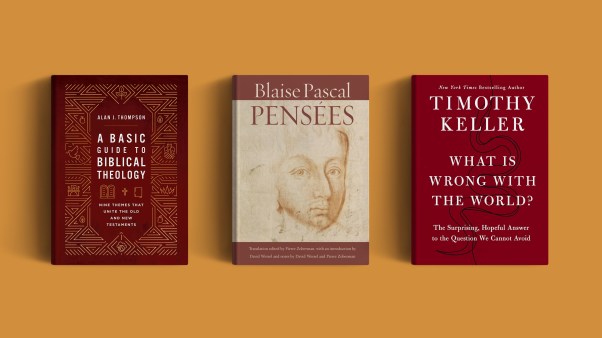James Lee Burke is the author of numerous novels. He grew up in Texas and Louisiana and now splits his time between the two states, where his latest novel is set. In the Moon of Red Ponies follows the transplanted Texan attorney Billy Bob Holland to Montana where his nemesis Wyatt Dixon, who Holland once sent to prison, is on the loose and harassing Holland’s loved ones.
Burke’s work has twice been awarded an Edgar for Best Crime Novel of the Year. The Lost Get-Back Boogie was nominated for a Pulitzer. Two of his novels, Heaven’s Prisoners and Two For Texas, have been made into motion pictures.
The Moon of the Red Ponies has been nominated for the Pulitzer and the National Book Award. But you are a role model for the writer who starts fast and then hits a roadblock. You had a nearly 15-year dry spell where you received more than 100 rejections. What kept you going?
I’d published three novels when I was a young man and it was remarkable to have done as much as I did. I thought my career was well established. I wrote a novel called The Lost Get-Back Boogie, and I thought I would just published, and that did not happen. I stayed out of hardback print for 13 years.
The Lost Get-Back Boogie was rejected 111 times, and that’s when I met my current agent, Philip Spitzer. He was driving a cab in Hell’s Kitchen [New York City], and he took my account. He was my cousin Andre Debusse’s agent and Andre, at that time, did not have the recognition that he has today. But Philip kept the work under submission all those years and Louisiana State University Press published it.
I really learned an old lesson that I had learned as a young man: You do it a day at a time. You write as well as you can, you put it in the mail, you leave it under submission, you never leave it at home. I had a rule for myself, I’d never leave a manuscript at home longer than 36 hours. It would be back under submission in a day-and-a-half. But I realized that an artist will never have any serenity unless he accepts the following premise: You write as well as you can, or you create a song or a sculpture or a painting, and then you turn it loose, you turn it over to some power outside of yourself and you don’t worry about its fate. If you do that, success and money and fame, all that stuff, will find you of their own accord, not because you seek them.
You said, “God might choose fools and people who glow with neurosis for his partners in creation, but he doesn’t make mistakes.” During those dry years, did you have a clear sense that writing was your calling?Â
My experience is not unique if you think of the writers who have struggled through adversity. Annie Proulx, for example, suffered years of poverty and lack of acceptance. Cormack McCarthy labored in obscurity and poverty for many years. Almost all the good ones pay those dues, but they never doubt the gift that was presented to them. You always know, no matter what anybody says about it, that it’s there for a reason. It’s kind of a terrible arrogance, and you don’t care if people denigrate you.
At what point did your sense of religious identity become your own?
I was raised Roman Catholic, and I’m a practicing Catholic today. I learned a lot of lessons during that period when I could sell nothing. There’s nothing like rejection to make you do an inventory of yourself. I received literally hundreds and hundreds of rejections. I used to save all my rejection slips because I told myself, one day I’m going to autograph these and auction them. And then I lost the box.
I appreciate the compliment that what occurred in my career is exceptional, but in truth it’s not. Every artist knows that at some point the gift he has will eventually be made manifest. He will, at some point, see the work he has done improve the lives of others around him. But I think every artist also realizes that time will go away from him, too. Success is a fickle companion. And even though those 13 years in the middle of my career were hard ones, I learned an invaluable lesson. If you seek success for its own sake, you’ll probably never have any.
In The Moon of the Red Ponies, you bring out the plight of Native Americans in Johnny American Horse. Who is he, and what was the inspiration for him?
Johnny American Horse is half Salish, or Flathead Indian, and half Oglala Sioux, or Lakota Sioux. He’s a descendant of Crazy Horse who was a medicine or holy man as well as a great warrior. But Johnny’s a veteran of the First Gulf War, Desert Storm, and appears to have Gulf War Syndrome. Some people think he’s simply a drunk. But he has visions and he wants to see the earth restored by the “everywhere spirit.” He wants to see the bison roam free on the plains. He’s an idealist, he’s messianic. In some ways he is a public fool, but he’s true to his vision and he’s a man of enormous courage.
It’s obvious in the book he becomes a Christ figure who’s to be eventually crucified by all the forces that he brings down upon his head. He’s a totally honest and brave and decent man, but he’s one of those people who doesn’t fit, particularly when it comes to corporate interests that, in Montana, have their eye on some natural gas and oil sites.
You’re able to address an abstract theme through a character who typifies that theme. Yet you don’t sit down and decide you need a Christ-like figure here or there. How do you explore something through a character without making that character a simple representation or an allegory of a theme?
I believe the characters live in the unconscious, and I’ve never quite understood where they come from. They have some kind of correspondent in the external world or in past experience, but they take on identities of their own. Let me quote better men than I. William Faulkner, right before his death said, “Had I not written these books, another hand would have written them for me. And these hills will find breath for me.” In other words, he was just the vessel, the agency, of something larger than himself. Ernest Hemingway said when he completed the last page of Old Man in the Sea, he read the whole manuscript back through in one sitting. And this is an exact quote. He said, “It was as though someone else had written it.” I think every great artist says the same thing. It came from somewhere else. The story is already there. Michelangelo put it far better than I could ever. He said, “He did not carve the sculpture, he liberated it from the stone.”
When you think about your own depth as a writer, what were some of the defining moments in your life experiences that brought maturity to your writing?
I think every human being has a half-dozen experiences in his life that will shape who that person becomes. They’re usually experiences that are seldom shared. But I believe that the capability of telling an epic story lies inside every human being. The story of Ulysses and Agamemnon and Menelaus, of Jesus, of the Good Knight of Chaucer, lives in every one of us.
It’s a Jungian notion, but I think all of us have to contend with two concepts. One has to do with power. Anyone who gets into psychoanalysis is going to hear that word lots of times because that’s what it’s about. That’s what human society has always been about, the acquisition of power, its use, and misuse. The second word is trust. Trust and intimacy are inextricably linked to one another. Those qualities or virtues or vices all were defined at certain moments in our life. And with the child it has to do with affirmation that gave him a sense of trust about the world or betrayal that made the world his enemy.
It’s an interesting thing. Psychologists call a Gethsemane experience what St. John of the Cross called the long night of the soul. The people who experience it are changed forever, but they never tell anybody about it.
Copyright © 2004 Christianity Today. Click for reprint information.
Related Elsewhere:
In the Moon of Red Ponies is available from Amazon.com and other book retailers.
Autographed books, message boards, Robicheaux Gear, and more information about James Lee Burke are available from his web site.
Dick Staub is president of the Center for Faith and Culture, which examines intersections between popular culture and religious belief. Complete transcripts and audio versions of Dick Staub Interviews can be found at dickstaub.com. Recent Dick Staub Interviews for Christianity Today include:
G.P. Taylor, Dracula’s Former Vicar | The author of Shadowmancer talks about his early interest in the occult, and his later transformation into a clergyman. (June 17, 2004)
Tom Wright Comments for Everyone | The author of the Christian Origins and the Question of God series is also writing a commentary series for the masses. (July 08, 2004)
Art Lindsley Says Truth Is True—and Absolute | The author of True Truth believes Christians shouldn’t be post-modern, modern, relativist, or absolutist. (June 2, 2004)
Finding God in the Questions | ABC News Medical Editor, Dr. Timothy Johnson, decided to rethink his faith and found God by asking questions. (May 25, 2004)
TV’s Spiritual Directors, Buffy and Angel | As Angel enters the TV afterlife, the author of What Would Buffy Do? explores one of television’s more spiritual shows. (May 19, 2004)
Driving to Paradise | David Brooks, author of On Paradise Drive, says Americans are on a spiritual search for paradise, and Christians need to supply the language for the search. (May 05, 2004)
Jerry Bridges Is Still Pursuing Holiness | After 25 years, The Pursuit of Holiness is a classic (April 27, 2004)
Craig Barnes Is Getting Restless | The author of Sacred Thirst says modern life is nomadic, and we are all searching for a home we can’t find on earth. (April 13, 2004)
Coming Back to the Heart of Worship | We can’t not worship, says Harold Best. But we can worship wrongly. (April 06, 2004)
William Dembski’s Revolution | The author of Intelligent Design set out to answer the toughest questions about the movement he helped promote (Mar. 30, 2004)
Steve Wilkens Loves Bad Christians and Pagans | The author of Good Ideas from Questionable Christians and Outright Pagans believes Christians can learn a lot from skeptics and non-Christians. (March 23, 2004)








